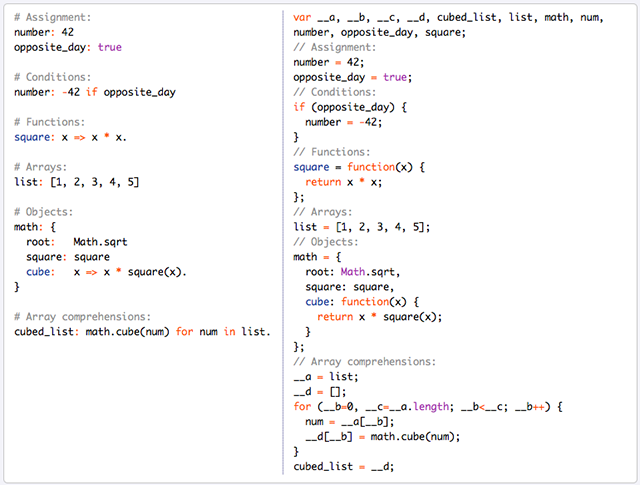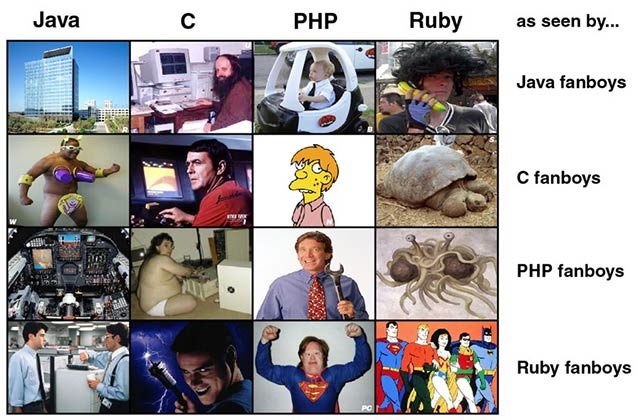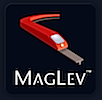 Cramp (GitHub repo)is a new, asychronous evented Web app framework by Pratik Naik of 37signals (and the Rails core team). It’s built around Ruby’s EventMachine library and was designed to use event-driven I/O throughout – making it ideal for situations where you need to handle a large number of open connections (such as Comet systems or streaming APIs.)
Cramp (GitHub repo)is a new, asychronous evented Web app framework by Pratik Naik of 37signals (and the Rails core team). It’s built around Ruby’s EventMachine library and was designed to use event-driven I/O throughout – making it ideal for situations where you need to handle a large number of open connections (such as Comet systems or streaming APIs.)
Out of the box, Cramp relies on Rails 3.0-pre’s ActiveSupport and ActiveModel libraries (and won’t work with earlier versions). Using these, it presents you with two layers to develop: controllers and models. Cramp controllers are ostensibly Rack compliant (Rack was designed primarily for synchronous scenarios) but Thin is currently the only HTTP daemon that can run Cramp apps due to its asynchronous app support. Read More




 Overt humor isn’t usually Ruby Inside’s thing, but it’s the holiday season, so there’s nothing wrong with kicking up your heels and having a little fun. Don’t worry – this won’t become a habit. Promise! After the fold, check out a chart showing how programming language fanboys (Ruby’s included) see each other’s respective languages.
Overt humor isn’t usually Ruby Inside’s thing, but it’s the holiday season, so there’s nothing wrong with kicking up your heels and having a little fun. Don’t worry – this won’t become a habit. Promise! After the fold, check out a chart showing how programming language fanboys (Ruby’s included) see each other’s respective languages.


 I love checking out new Ruby libraries, and recently many new ones have passed my eyes. The most prominent releases get their own post on Ruby Inside, but often there are less significant libraries that I’d struggle to write 100 words about yet still contribute to Ruby’s lifeblood. This post aims to round up a selection of my recent discoveries.
I love checking out new Ruby libraries, and recently many new ones have passed my eyes. The most prominent releases get their own post on Ruby Inside, but often there are less significant libraries that I’d struggle to write 100 words about yet still contribute to Ruby’s lifeblood. This post aims to round up a selection of my recent discoveries. It’s long been a bone of contention in the Ruby world that Ruby, as a programming language, doesn’t have an official spec (though
It’s long been a bone of contention in the Ruby world that Ruby, as a programming language, doesn’t have an official spec (though  Uh oh, it’s upgrade time again. Today, the official Ruby 1.9 maintainer (Yuki Sonoda, a.k.a. Yugui) announced
Uh oh, it’s upgrade time again. Today, the official Ruby 1.9 maintainer (Yuki Sonoda, a.k.a. Yugui) announced 


 Welcome to the latest installment in the series of compilation posts summarizing some of my latest findings in the world of all things Ruby. Let’s tackle those links..
Welcome to the latest installment in the series of compilation posts summarizing some of my latest findings in the world of all things Ruby. Let’s tackle those links..